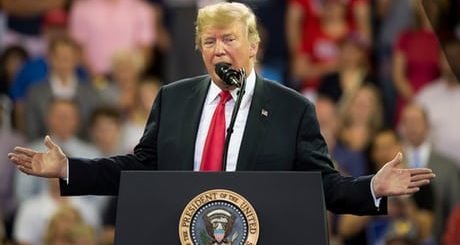Merkel, Macron search for reforms to halt EU ‘disintegration’
Meseberg — German Chancellor Angela Merkel hosted French President Emmanuel Macron today to hammer out reforms that can stop the “disintegration” of the European Union, torn by populist forces and deep discord over immigration.
The two leaders of Europe’s biggest economies will seek to thrash out a compromise between Macron’s bold vision for sweeping EU change and Germany’s stance that is more cautious, especially when it comes to financing.
Merkel and Macron have both stressed that, as US President Donald Trump openly challenges the EU with a trade war and over security and climate policy, the bloc must learn to stand its ground on the world stage.
The ministerial retreat at Meseberg castle near Berlin aims to agree on a joint Franco-German stance ahead of a key June 28-29 summit on the EU’s post-Brexit future, at a time when populists and eurosceptics are rapidly gaining ground.
As outspoken pro-Europeans, Merkel and Macron both face harsh opposition from nationalist and right-wing populist forces at home, and in the governments of Italy, Austria, and several eastern European countries.
Ahead of the meeting, French Finance Minister Bruno Le Maire warned that “Europe is in a process of disintegration. We see states that are turning inward, trying to find national solutions to problems that require European solutions.
“It is essential to propose a new European project on immigration, on economic issues, on financial issues to consolidate Europe in a world where you have the United States on one side, China on the other and we are trapped in the middle.”
The question of how many migrants the bloc can absorb came back to the fore strongly when last week Italy and Malta both turned back a rescue vessel carrying 630 refugees, which was eventually accepted by Spain.
The move sparked a clash between France and Italy as immigration also triggered a domestic crisis for Merkel, a leader already weakened by her decision in 2015 to keep open German borders to a mass influx of more than one million refugees.
Merkel now faces a dangerous mutiny from her hardline Bavarian Interior Minister Horst Seehofer, who has vowed to defy her and order police to shut German borders to most asylum seekers by early July absent an EU accord.
Merkel, arguing that the issue must be resolved at the EU level, has pledged to reach deals with transit and arrival countries in the narrow two-week window ending with the Brussels summit.
“Turning away migrants at our borders at the heart of Europe will lead to negative domino effects that could hurt Germany and put into question European unity,” she has warned.
Trump chimed into the debate with a Twitter taunt yesterday, charging that “the people of Germany are turning against their leadership as migration is rocking the already tenuous Berlin coalition”.
Merkel and Macron agree that overburdened Mediterranean countries need financial support or incentives and that the EU’s Frontex border force must receive more funding, while Paris also advocates the creation of asylum processing centres in Africa.
While migration looked to be the most urgent issue, a host of other tricky topics were on the agenda yesterday — from eurozone finance and investment to common defence.
Macron last year outlined his vision for a stronger, more united Europe as a forceful reply to what was known as the National Front, a far-right party he defeated at the polls.
But he was long left waiting for a response from Berlin as Merkel, weakened by poor September election results, was occupied by half a year of arduous coalition talks. When she finally gave a reply several weeks ago, it fell short of many of Macron’s core demands.
She dashed Macron’s hopes for a joint eurozone finance minister and budget, mindful of German public fears that their tax money is squandered on what voters see as fiscal irresponsibility in southern EU states.
The Elysee Palace said yesterday it hoped for “a substantial agreement” on reform of the common currency area, with a specific budget for a “safety net” to save banks in trouble.
Merkel has agreed on a common investment budget for the bloc but says it should be worth several tens of billions of euros, not the hundreds of billions suggested by Macron.
Paris and Berlin are also discussing ways to turn the European Stability Mechanism into a more potent firefighter akin to a European IMF, and how to create greater defense cooperation.
Germany’s Sueddeutsche daily praised the partnership, saying that “with unrest so rife across the EU, Europe can consider itself lucky if it is able to find any common ground at all”.
“In an unhinged world, France and Germany should be grateful for the ties which still bind them.
AFP
Adriana Murolo The Kootneeti Team - European Monitor


















